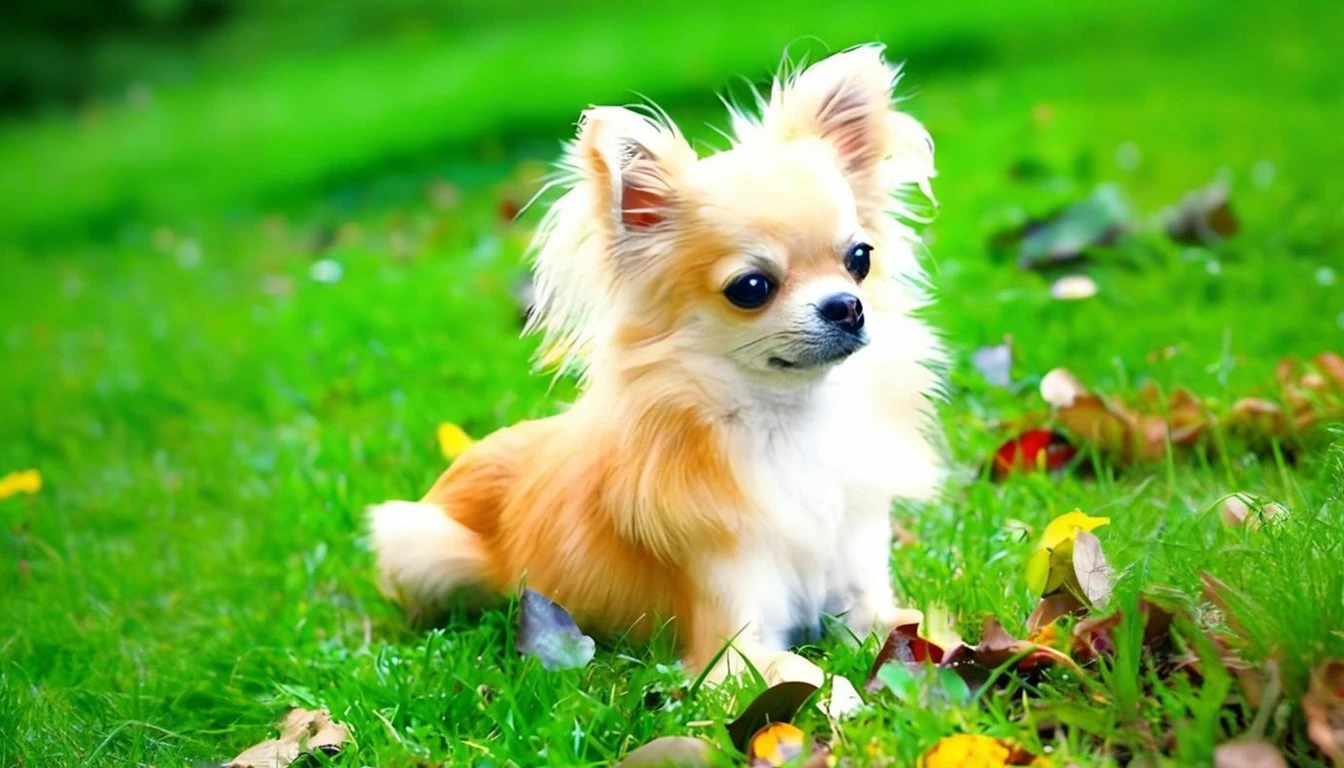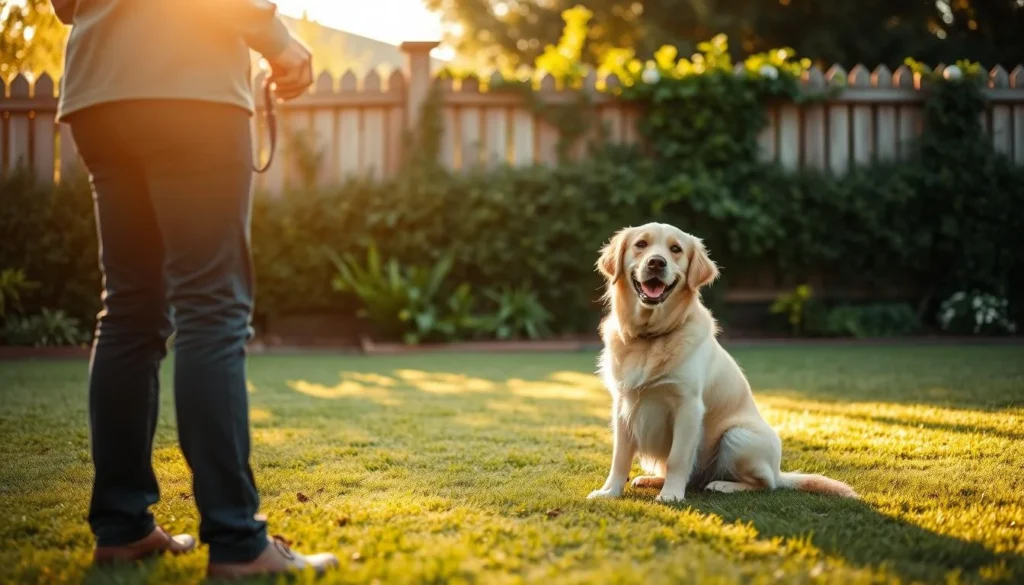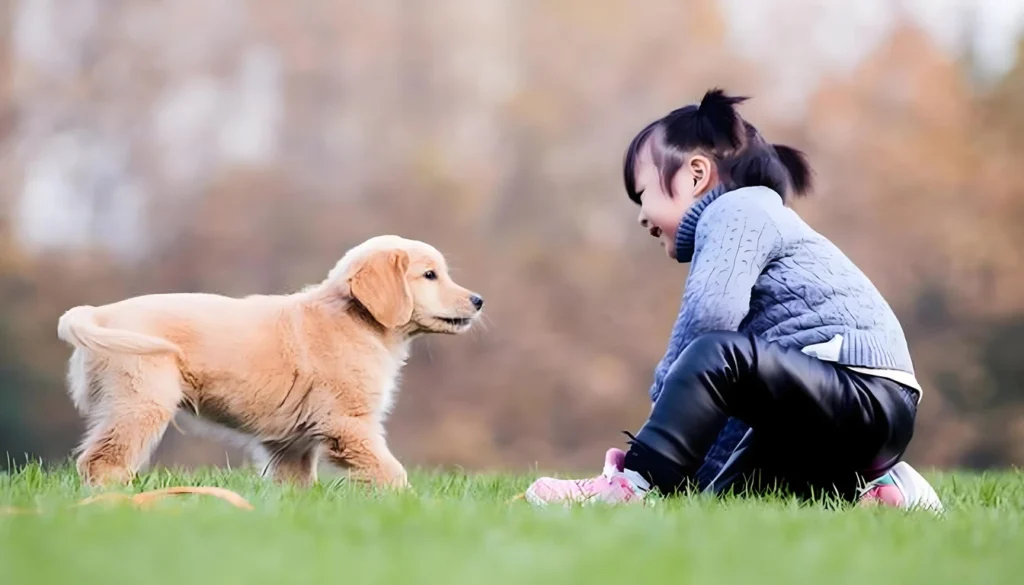Training a dog is a journey filled with love, patience, and learning. My adventure with my lively Chihuahua showed me that these tiny dogs have big personalities. Their training needs are as unique as they are.
At times, training my little companion felt overwhelming. But I soon found that the right approach could turn challenges into cherished moments. Chihuahua training shapes their behavior and strengthens our bond.
Understanding how to train Chihuahuas revealed their incredible intelligence and potential. Let's explore effective training tips that can transform your small dog into a well-behaved and joyful family member.
Key Takeaways
- Chihuahuas require specialized training techniques to suit their unique personality.
- Starting early with training chihuahuas can yield better long-term results.
- Positive reinforcement techniques are particularly effective for small dog training.
- Short and engaging training sessions help maintain your Chihuahua's focus.
- Addressing behavioral issues quickly contributes to better obedience and companionship.
- Socialization is crucial for developing a well-adjusted Chihuahua.
Introduction to Chihuahua Training
Training a Chihuahua is more than just teaching commands. It's key to being a responsible pet owner. It sets boundaries and helps manage their behavior. The right training tips focus on their unique nature and how to train them best.
Consistent training turned my Chihuahua into a well-behaved friend. Patience is essential. It builds trust and communication. Early training leads to a strong, happy bond, making life with them better.
Understanding the Chihuahua Breed
Thinking about the chihuahua breed, their size and personality really catch my eye. These tiny dogs are part of the toy breed group. They can be 5 to 8 inches tall and weigh less than 6 pounds. Their small size adds to their charm, making them a favorite among dog lovers.
The chihuahua's personality is quite interesting. They can be loving, loyal, and bold. They form strong bonds with their owners. Their playful nature shines during playtime, showing their joyful spirit.
Grooming needs depend on their coat type. Whether it's smooth or long, regular brushing keeps their coat healthy. An occasional bath keeps them clean and looking great. Knowing how to groom them is key to keeping them happy and vibrant.
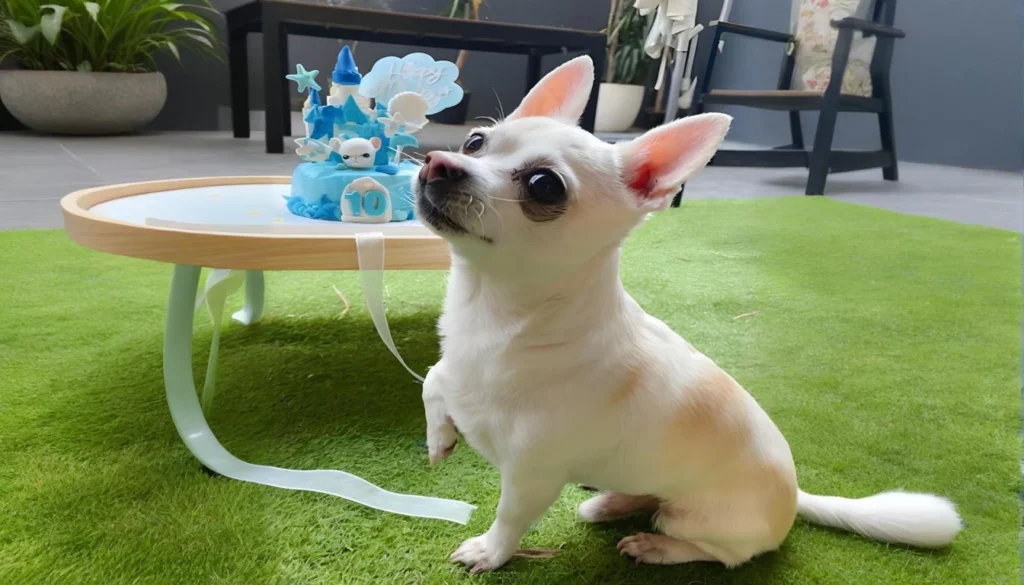
How Old Does a Chihuahua Have to Be to Start Training?
Early training is key for dogs, and it's especially true for Chihuahuas. They start learning at about eight weeks old. At this time, they are forming their personality and learning from their world.
Starting training early helps with any bad habits. It also strengthens your bond with your Chihuahua. This makes training fun for both of you. Plus, it helps them become confident and friendly.
Training young dogs helps them learn good habits. This makes it easier for you to teach them. Spend time training them early, and they'll become a well-behaved family member.
Essential Basics of Chihuahua Training
The ASPCA's small dog training guidelines emphasize that positive reinforcement is particularly effective for toy breeds like Chihuahuas, with their research showing these methods improve learning retention by 60% compared to punishment-based techniques. Their experts recommend keeping training sessions under 10 minutes for small dogs, as their attention spans are typically shorter than larger breeds. The ASPCA also notes that Chihuahuas respond exceptionally well to food rewards, suggesting using pea-sized treats to prevent overfeeding while maintaining motivation during training.
Training a Chihuahua needs special methods that fit this lively breed. Two key techniques are positive reinforcement training and short training sessions. These methods help teach basic dog commands well.
Focus on Positive Reinforcement
Positive reinforcement training makes learning fun for Chihuahuas. It rewards good behavior, encouraging your dog to do it again. Chihuahuas are smart but can be stubborn. Treats, praise, or playtime as rewards motivate them to learn.
Keep Training Sessions Short
Training should last 5 to 10 minutes for best results. Chihuahuas focus well in short sessions. This keeps them interested and helps them remember commands better. Short training also keeps everyone happy.
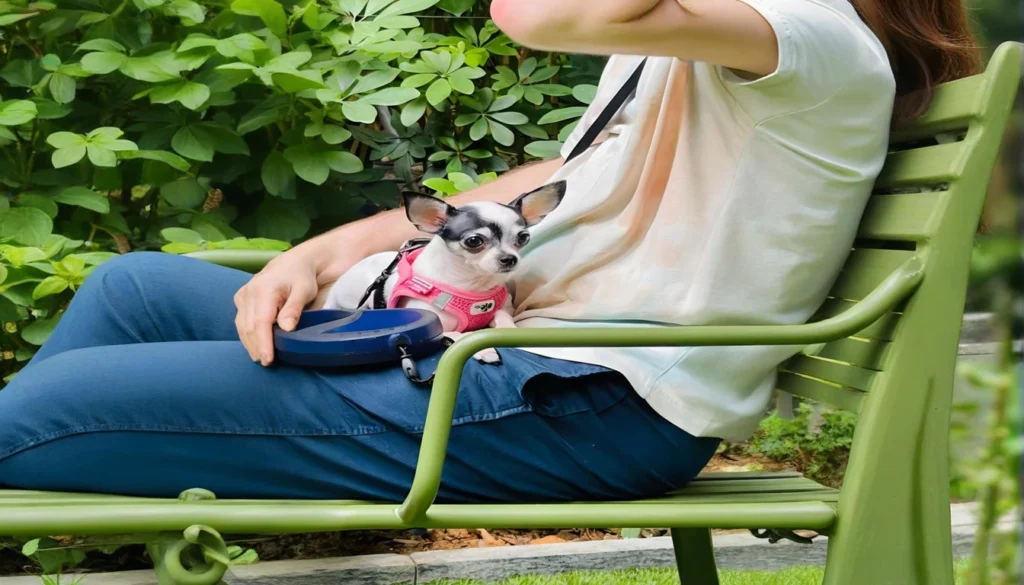
| Training Method | Benefits |
|---|---|
| Positive Reinforcement | Encourages good behavior through rewards |
| Short Training Sessions | Maintains focus and enhances retention of commands |
Chihuahua Training Techniques for Basic Commands
Learning basic commands like sit, stay, and come is key for Chihuahua owners. These commands improve communication and keep your pet safe. Using the right training methods makes learning fun for both you and your dog.
Teaching Sit, Stay, and Come
Teaching your Chihuahua these commands is easy. Start with the sit command. Hold a treat above their nose and move it back over their head. This will make them sit down.
Once they sit, give them the treat right away. Do this a few times so they learn the command.
For the stay command, first teach them to sit. Then, hold your hand out and say "stay" while stepping back. If they stay, give them a treat and praise them. Keep increasing how far you step back.
The come command is vital for your Chihuahua's safety. Start in a quiet area. Use a long leash and say "come" while pulling them towards you. When they come, give them lots of praise and treats. Practice this often to make sure they learn it well.
How to Use Treats for Training
Treats are great for training Chihuahuas. They love food, so treats help them learn good behaviors. Use small, healthy treats to keep them interested without overfeeding.
- Reward them right after they do the command to help them connect it.
- Slowly give fewer treats as they get better to teach them self-control.
- Use special treats for hard commands to keep them excited.
Being consistent and patient is important in training your Chihuahua. Practice these commands in short sessions to keep them focused. With the right approach, teaching these commands can be a fun experience for both of you.
Chihuahua Training: Addressing Behavioral Issues
As a Chihuahua owner, I know how tough it can be to deal with issues like too much barking and aggression. It takes patience and knowledge to help my furry friend behave better. Recognizing and managing chihuahua barking is key, as it often shows anxiety or a need to protect.
Managing Excessive Barking
Too much barking can come from boredom, fear, or a need to guard. To fix this, I use these strategies:
- Identify Triggers: Find out what makes them bark. It's often the doorbell, other pets, or loud sounds.
- Positive Reinforcement: I give treats and praise when they're quiet during a trigger.
- Consistency: Always respond the same way to barking. This helps them learn what's okay.
Dealing with Aggressive Chihuahuas
Aggressive behavior in Chihuahuas is a big worry, especially if they act out towards other dogs or strangers. Here's how I handle it:
- Socialization: Slowly introduce them to new places, people, and pets. This helps reduce fear and aggression.
- Calm Environment: Keeping our home peaceful makes my Chihuahua feel safe and calm.
- Training Commands: Teaching them commands like "sit" and "stay" helps them understand what's expected. This can lessen aggressive behavior.
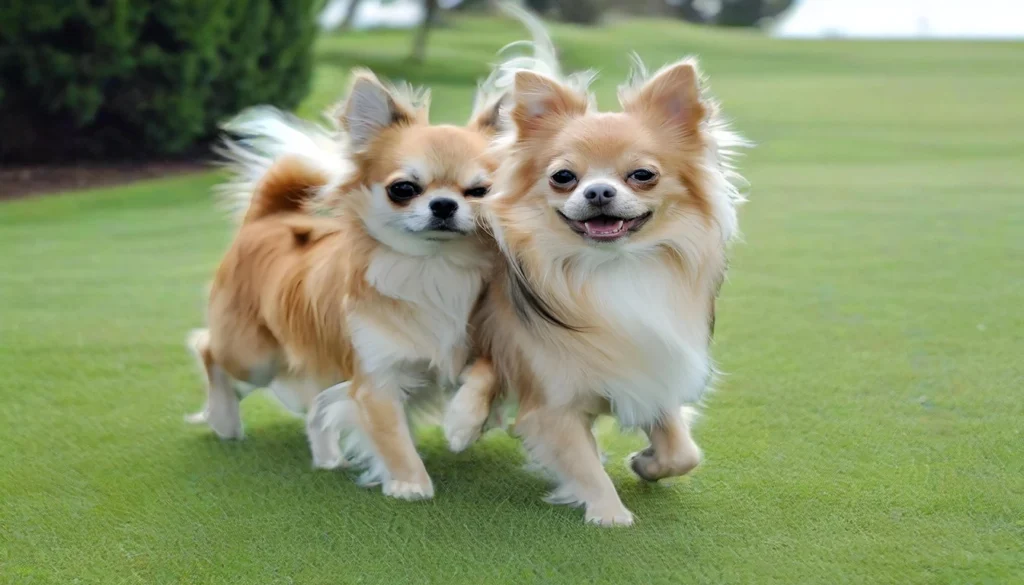
Socialization: Key to a Well-Behaved Chihuahua
Socialization is very important for Chihuahuas. They need to meet different people, pets, and places early on. This helps them feel confident and calm in new situations.
Without socialization, Chihuahuas might get too scared or even aggressive. This can cause bad behavior.
As a Chihuahua owner, I've seen how important it is to socialize them. Taking them to different places and meeting new people makes them better pets. It helps them adapt and behave well, both at home and out.
| Socialization Activities | Benefits |
|---|---|
| Visiting a dog park | Encourages interaction with other dogs and owners |
| Attending puppy classes | Teaches basic commands and good manners |
| Meeting new people | Reduces fear of unfamiliar humans |
| Exposure to different environments | Prepares for various situations like travel or vet visits |
Adding these activities to a Chihuahua's life makes a big difference. Socializing them is key to their happiness and strengthens the bond between dog and owner.
Advanced Training for Chihuahuas
Advanced chihuahua training is very rewarding. It goes beyond basic commands and taps into their playful and smart side. These activities not only keep their minds sharp but also strengthen our bond. Here are some fun tricks to make your training sessions better.
Fun Tricks to Teach Your Chihuahua
- Shake Hands: Start by having your chihuahua sit. Gently lift their paw while saying "Shake" and reward them with a treat for their effort.
- Play Dead: Begin this trick by having your dog lie down. Use a command like "Bang!" and guide them to roll onto their side, rewarding them for being still.
- Spin: With a treat in hand, guide your chihuahua in a circle while saying "Spin." Reward them once they complete the full turn.
- Jump Through a Hoop: Introduce your chihuahua to a hula hoop gradually. Encourage them to jump through it with a treat when they succeed.
These activities bring joy to both of us. Advanced training keeps their minds and bodies active. Celebrating small victories makes training a fun experience for my chihuahua.
How to Train a Chihuahua to Play Nice with Larger Dogs
Training a chihuahua to get along with bigger dogs is rewarding. I began by understanding my chihuahua's personality and the bigger dog's temperament. Early social experiences are key in shaping how these dogs interact.
- Start at a Safe Distance: Introduce your chihuahua to the larger dog in a controlled environment. Keeping a safe distance allows both dogs to familiarize themselves without feeling overwhelmed.
- Use Positive Reinforcement: Reward your chihuahua for calm behavior around the larger dog. Treats and praises can greatly enhance small dog training.
- Supervised Playdates: Arrange regular play sessions under supervision. This approach fosters positive chihuahua play behavior while minimizing risk.
- Teach Basic Commands: Ensure your chihuahua knows basic commands like "sit" and "stay." This foundation helps me manage interactions better with larger dogs.
- Monitor Body Language: Always watch the body language of both dogs. If my chihuahua displays signs of stress, I intervene and give them a break.
With patience and consistent training, my chihuahua learned to enjoy the company of larger dogs. Such interactions not only build confidence but also create lasting friendships. Adapting small dog training methods to suit this dynamic proves to be essential for success.
The Importance of Consistency in Training
Training my Chihuahua has taught me the value of consistency in dog training. Keeping commands and routines the same helps my dog understand what I want. This clear communication makes training smoother.
Changing commands or actions can confuse my Chihuahua. Using the same words and actions every time strengthens our bond. It also makes my dog trust the training process more.
Consistency is key to effective training practices. Regular routines, like feeding and playtime, give my Chihuahua security and clarity. These habits are the foundation for more complex training later on.
Using Games and Play in Chihuahua Training
Using games in Chihuahua training is a favorite strategy of mine. It makes training fun for both my dog and me. I love playing interactive games that keep my dog's body and mind active.
These games keep my Chihuahua focused and engaged. They help my dog learn new tricks and remember old ones. I use fun methods that include toys and treats to make learning positive.
Playing games lets me see my Chihuahua's natural behaviors. Whether it's playing fetch or solving a puzzle toy, each game has a purpose. Seeing my dog happy when they learn something new makes training rewarding.
Play and games in training offer a complete way to teach Chihuahuas. It mixes learning with fun, strengthening our bond. This approach boosts my dog's motivation to learn, leading to better behavior and happiness.
Understanding Your Chihuahua's Unique Needs
As a Chihuahua owner, I quickly learned that meeting their special needs is crucial. These tiny dogs have unique requirements for their health. It's important to address these needs to ensure they thrive.
Proper nutrition is key for my Chihuahua's development. I choose high-quality dog food made for small breeds. This helps them get the right nutrients without gaining too much weight.
Regular health checks are also vital. I take my Chihuahua to the vet often to catch health issues early. Chihuahuas can get dental problems and heart disease, so early care is essential.
Grooming is another important part of caring for my Chihuahua. I brush their coat regularly, especially if it's long. This keeps them looking good and prevents matting and skin problems.
In summary, understanding and meeting the special needs of Chihuahuas is crucial. From nutrition and health checks to grooming, each step is important. It ensures my furry friend stays healthy and happy in a loving home.
Tips for Training Older Chihuahuas
Training adult Chihuahuas can be both challenging and rewarding. As they age, they might not learn as quickly. It's important to be patient and understand their physical limits. Adapting your training methods can greatly improve their behavior.
Shorter training sessions are key. Older dogs have shorter attention spans. Brief, engaging sessions keep them focused. Short training bursts are better than long ones, letting them learn at their own pace.
Keeping older dogs social is crucial. They need to stay engaged with their surroundings and other pets. Start new experiences slowly. Use puzzle toys or simple commands to keep their minds active without stressing them.
Positive reinforcement is essential. Rewarding good behavior with treats, praise, or affection is very effective. It strengthens your bond and encourages them to learn more.
In summary, training older Chihuahuas needs a special approach. Be patient, adjust your methods, and make training fun. This way, you'll see great results and keep your Chihuahua happy and involved.
Conclusion
Looking back, I see that training Chihuahuas is more than just a task. It's a journey that changes how we connect with our pets. Through consistent training and positive reinforcement, a strong bond forms. Every small win is a step towards our dogs' growth.
Knowing the value of dog training is key. It's not just about teaching tricks; it's about building a loving relationship. It improves communication and makes sure your dog is well-behaved. The tips shared here are a great starting point for anyone, making training rewarding and fun.
As you start training your Chihuahua, cherish every success, no matter how small. These moments are precious and make your bond stronger. With dedication and love, your Chihuahua will become a well-trained family member.

